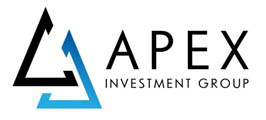HEALTH SAVINGS ACCOUNT (HSA)
An HSA is more than healthcare – It’s a financial strategy.
What Is an HSA?
A Health Savings Account (HSA) is a tax-advantaged savings account designed to help individuals and families set aside money for qualified medical expenses.
HSAs combine the benefits of tax-free contributions, growth, and withdrawals – making them one of the most efficient ways to manage healthcare costs while building long-term savings.

Key benefits:
- Tax-deductible contributions reduce your taxable income.
- Tax-free growth on interest and investment earnings.
- Tax-free withdrawals when used for qualified medical expenses.
- Manageability – your HSA stays with you even if you change jobs or health plans.
Who Can Use an HSA?
To be eligible to contribute to an HSA, you must:
- Be covered under a High-Deductible Health Plan (HDHP).
- Not be enrolled in Medicare.
- Not be claimed as a dependent on someone else’s tax return.
How to Open an HSA
- Confirm eligibility: Ensure that you are covered by a qualified HDHP.
- Choose a provider: Various banks, credit unions, and financial institutions offer HSAs. We are now able to offer HSA accounts through our relationship with Fidelity.
- Fund your HSA: Contribute through payroll deductions, direct deposits, or transfers. Annual contribution limits are set by the IRS and adjust periodically.
- Use it wisely: Pay for qualified medical expenses now or invest the funds for future healthcare expenses.
Advanced Planning Concepts for HSAs & High-Income Earners
HSAs can be much more than a medical spending account—they can also be a great wealth-building tool, especially for high-income earners:
- “Stealth IRA” Strategy: Treat your HSA as a long-term investment account by paying current medical costs out of pocket and letting your HSA grow tax-free.
- Triple Tax Advantage: Contributions, growth, and withdrawals (for qualified expenses) are all tax-free. For those in higher tax brackets, this benefit is especially valuable.
- Retirement Healthcare Funding: After age 65, HSA funds can be withdrawn for non-medical expenses without penalty (though subject to ordinary income tax). For medical expenses, withdrawals remain tax-free.
- Investment Options: Many HSA providers allow investments in mutual funds, ETFs, and other vehicles—helping high earners grow healthcare savings like a retirement account.
All information has been obtained from sources believed to be reliable, but its accuracy is not guaranteed. There is no representation or warranty as to the current accuracy, reliability, or completeness of, nor liability for, decisions based on such information and it should not be relied on as such.
Apex Investment Group, LLC (“Apex Investment Group”) is a registered investment advisor. Advisory services are only offered to clients or prospective clients where Apex Investment Group and its representatives are properly licensed or exempt from licensure.”
Ready to see if an HSA is right for you?
